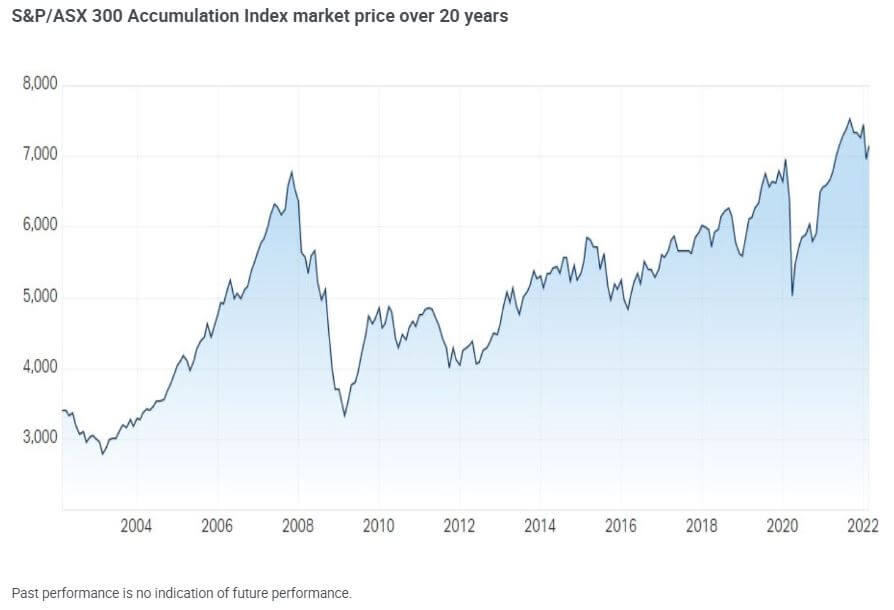When the news is filled with headlines about market movements, it’s normal to feel a bit anxious. Here are three things to keep in mind the next time share markets aren’t behaving the way you’d like them to.
- Markets constantly go up and down
As long as we’ve had share markets, we’ve had share market volatility. Share markets operate on a supply and demand model, so if there are more investors wanting to sell shares instead of buying them, markets will go down. If there are more buyers than sellers, markets will go up. This is one of the fundamental principles of investing – and it’s what makes markets unpredictable.
However, every now and again an event will occur that will have a more substantial impact on markets than these daily fluctuations.
Here are some examples:
- Industrial and economic developments
- Government fiscal and monetary policies
- Change in political leadership
- Technology changes
- Wars and civil unrest
- Natural disasters and extreme weather events
- Company performance and profits (particularly with large, influential companies)
- Pandemics (such as Coronavirus)
These types of events tend to impact business and consumer confidence, which can lead to more investors selling shares instead of buying them. This can create a market downturn that could stretch for days, weeks or even months.
The Australian market will be impacted by events, particularly economic activity, in the major economies of the world.
- The long term trend is usually positive
History has shown us that even though share markets fluctuate regularly, the general trend is always upwards over the long term. For example, the S&P/ASX 300 Accumulation Index, which tracks the performance of the largest 300 companies on the Australian stock market, increased from 4,052 on 30 December 2011 (the last trading day of that year) to 7,453 on 31 December 2021, despite a lot of bumps along the way. When you add in the return of dividends paid over that period, that’s a total return of 184%.
In other words, if you had invested $10,000 in the S&P/ASX 300 on 30 December 2011, it would have been worth $18,393 on 31 December 2021. You would have also received a healthy flow of dividends along the way.

Market downturns are inevitable but they usually have periods of strong returns in between. Keep in mind that even if the immediate outlook for markets doesn’t look promising, it’s likely that they’ll pick up again at some point in the future.
That’s why, when it comes to your super, it’s important to take a long term view. Your balance will likely go up and down over the short term in line with market movements, but if you stay invested your balance will generally increase over the long term.
- You can’t predict what will happen next
Another reason to keep your super invested, even during periods of volatility, is because there’s no simple way of predicting when or what the next change will be.
While it can be tempting to sell up or switch your super into different types of investments during a market downturn, it’s a risky strategy that may impact long term performance. This is because you may end up buying back the same shares at a higher price once the market picks up again.
However, everyone has different financial goals and timeframes. Your stage of life, in particular, can make a big difference to your investment strategy, because you may not feel comfortable experiencing market volatility if you’re approaching retirement or already retired.
That’s why we recommend speaking with a financial adviser if you’re concerned about market movements. They know how to deal with market volatility and can calculate the potential risks to your super to make sure you’re still on track to reach your long term goals.
Source: Colonial First State
